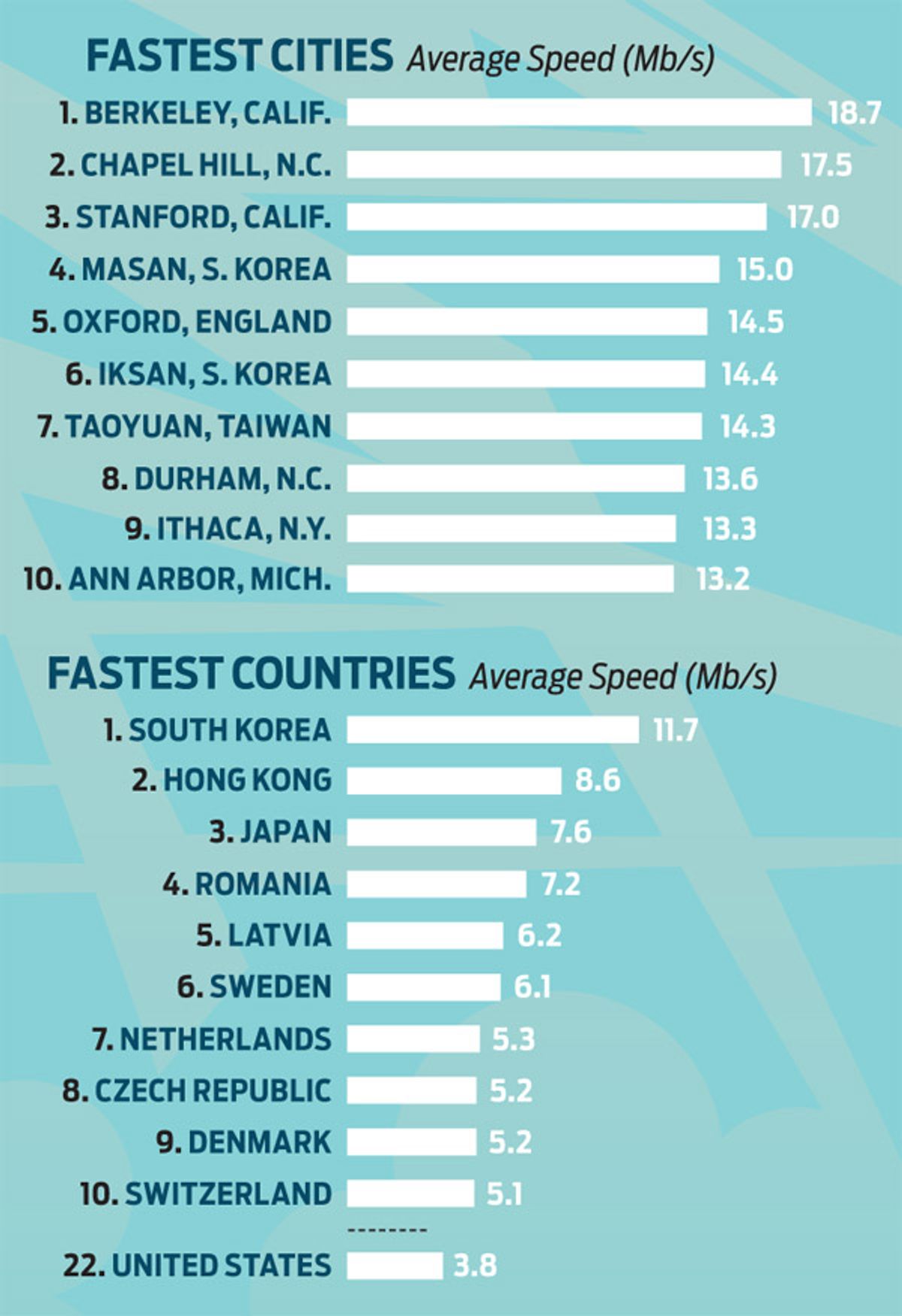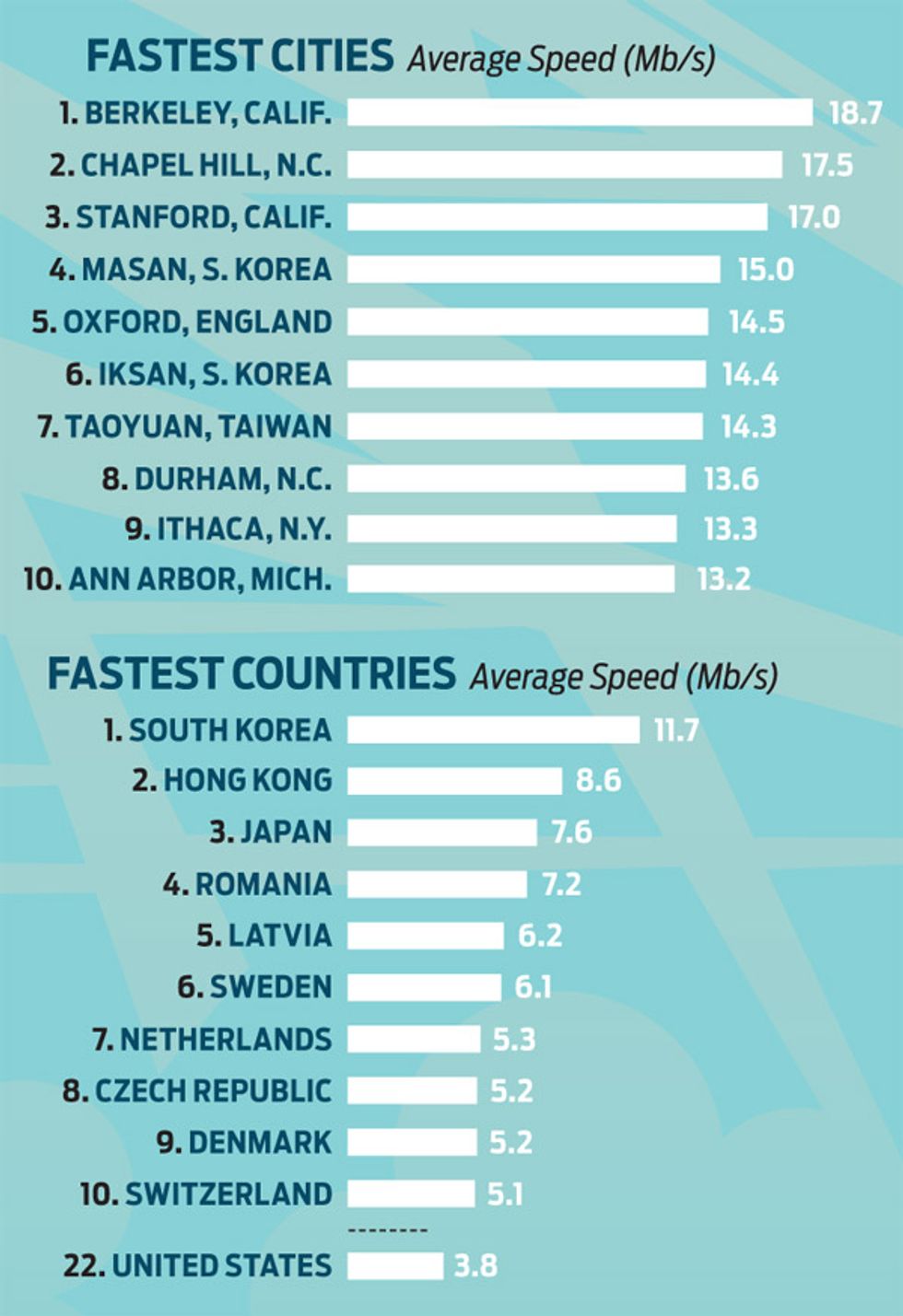Call it the real estate agent's rule: The speed of your connection to the Internet depends on location, location, and…the device you're using.
Akamai Technologies, the giant Internet service provider, produces regular state-of-the-Internet reports. Every time you connect to an Akamai server (for instance, to download a video), it records the IP address, the size of the file delivered, and the time it took to deliver it. The company aggregates these numbers geographically to obtain a rough picture of how Internet traffic is moving around the world.
If you like fast connections, you'll love South Korea, which has an average speed of 11.7 megabits per second. That gives it a huge lead over No. 2, Hong Kong (8.6 Mb/s), to say nothing of No. 22, United States (3.8 Mb/s). If you can't move to a new country, you can still move to a university town. The top three cities in the world are Berkeley, Calif. (at 18.7 Mb/s, much faster than South Korea), Chapel Hill, N.C., and Stanford, Calif. Oxford, England (No. 5), also fits into this mold.
Paradoxically, as Internet connectivity becomes ubiquitous, it gets worse—the average connection in South Korea, as well as in some of the leading U.S. states, has gotten slower over the past year. Korean downloads were 29 percent slower in 2009 than 2008, and they were 24 percent slower in the fourth quarter than in the third quarter. Blame it on smartphones. Looking at speeds before and after the November 2009 release of the iPhone there, David Belson, Akamai's director of market intelligence, wrote in the most recent report, "We believe that this launch was likely responsible for the significant drop in South Korea's average observed connection speed in the fourth quarter."
This article was updated on 11 August 2010.

